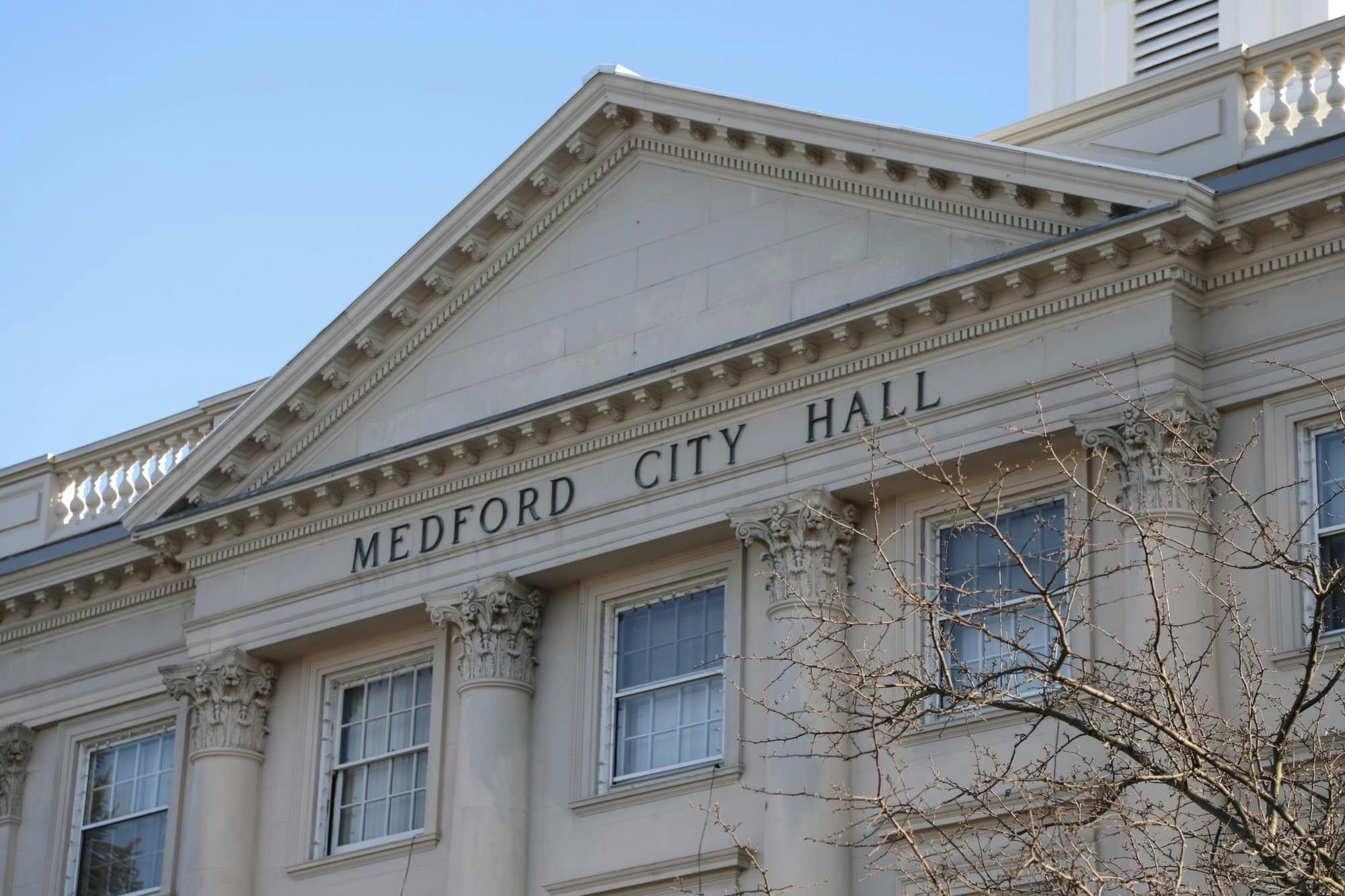The Medford City Council began discussions on the budget for fiscal year 2026 in its March 18 meeting of the Committee of the Whole. Amid uncertainty over federal funding, the council’s priorities included increasing support for public safety, maintaining budget allocations for schools and the library and funding affordable housing research programs, among other initiatives.
A majority of councilors spoke in favor of increasing funding for the Department of Public Works in order to implement the road safety suggestions of the Medford Bicycle Advisory Commission, following two traffic accidents that recently caused fatalities in Medford.
“I think it’s a huge concern for residents … I see it on the roads all the time,” Medford City Council President Zac Bears said. “It seems pretty clear at this point that actually the physical infrastructure of the streets … is really the only way that you can make sure that folks are keeping to the speed limit.”
Another priority the council highlighted was funding a nexus study for the new affordable housing linkage program.
“We need to have this study done so that we can start assessing that impact fee on the larger new developments in the city, and then that money would go towards the affordable housing trust,” Bears said.
“These are funds where if we invest them now, we can see a return on investment,” City Council Vice President Kit Collins explained. “[They] will manifest into better funding for infrastructure and better funding for affordable housing.”
The council also was in favor of allocating funding for a therapeutic recreational specialist and an office manager for the Medford Recreation department. City Councilor Justin Tseng described funding these positions as an investment in accessibility and inclusion with regards to children and teenagers in Medford.
Councilors maintained that the school district and library’s budgetary requests should be met.
“We cannot permit any reduction from the school committee’s budgetary request,” Collins said. “It is very important to me that we prioritize meeting that this year as we always prioritize meeting that.”
For fiscal year 2026, two primary concerns exist around the amount of revenue that will be available. One concern shared by the school committee is the uncertainty surrounding federal funding and its potential impact on the city’s finances. These were shared during the March 19 joint meeting of the school committee and city council.
“Of course, there’s the outstanding question — that I know nobody can answer — about what the federal landscape is going to look like, and what is going to come or not come, in city-wide compensations,” Medford School Committee member Erika Reinfeld said. “We get, obviously, a lot of federal grants and a lot of federal aid.”
Rising healthcare costs for city employees also present a significant budget concern, with expenses projected to increase by 10%. This increase would consume the revenue from new growth and the standard 2.5% property tax increase.
“That’s significant if you think about how we raise revenue,” Medford Finance Director Bob Dickinson said in the joint meeting. “If you have a significant part of your budget that is going up 10% and historically, the amount you get from your tax levy goes up around 4%, that’s a big gaping hole in the budget.”
Despite potential financial strains, the city can factor in new override funds for the budget. The Medford City Council and school committee allocated these funds in their supplemental budgets in November and January, allocating $500,000 to the Department of Public Works and $7 million to the schools, respectively.
“Compared to where we were before the overrides, there’s a very significant increase for the school system, and that has been a priority of all of us for a while,” Bears said.
The override secures more funding that can meet the school district’s needs as costs have increased.
“Certainly here in Massachusetts, things like the cost of a school bus … are increasing faster than the 2 ½ %increase that we can rely on in terms of property tax dollars,” Jenny Graham, vice chair of the school committee, said.
A portion of the override funds allocated to the schools will go toward increasing the school maintenance budget and replacing technology, such as chromebooks, on an annual basis. Additionally, the increased budget will enable the committee to restructure the school day, with plans to extend it by 15 minutes.
“What Question 8 really was about was increasing the length of the school day to allow us to fix the schedule at the high school,” Graham said.
The additional time in the school day, which will apply to elementary, middle and high schools, will provide more opportunities for expanded programming, including enhanced vocational courses at the high school level and increased lab-based learning.
“Our vocational students, they don’t have space in their schedule right now to take a language. In this [new] schedule we’ll afford them space to take a language,” Graham explained.






